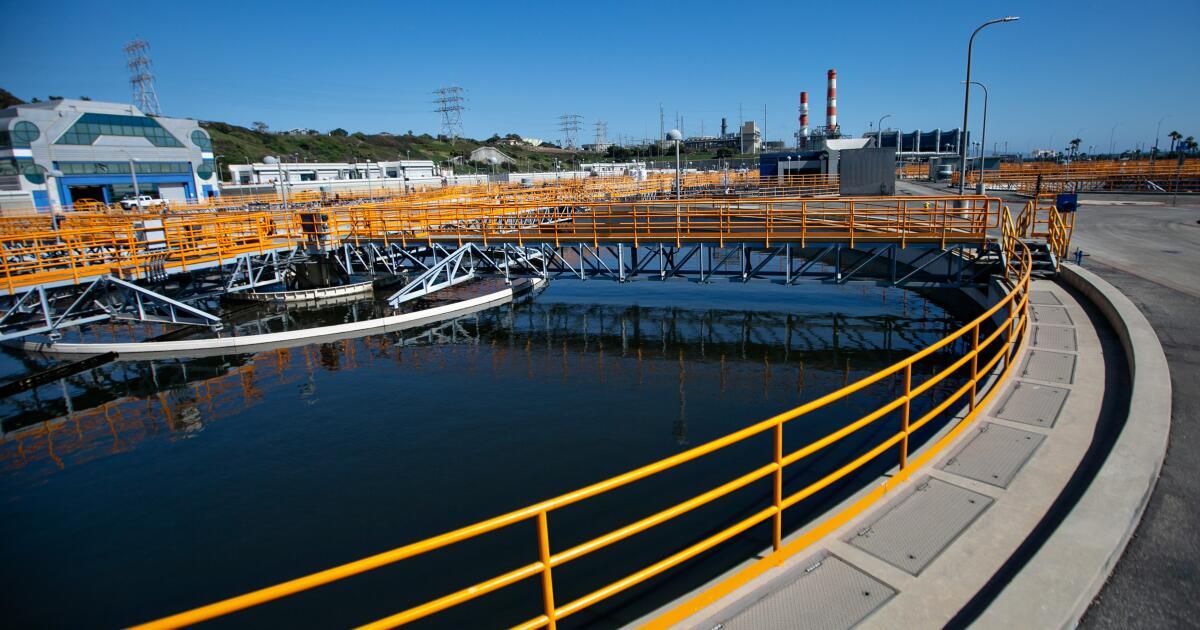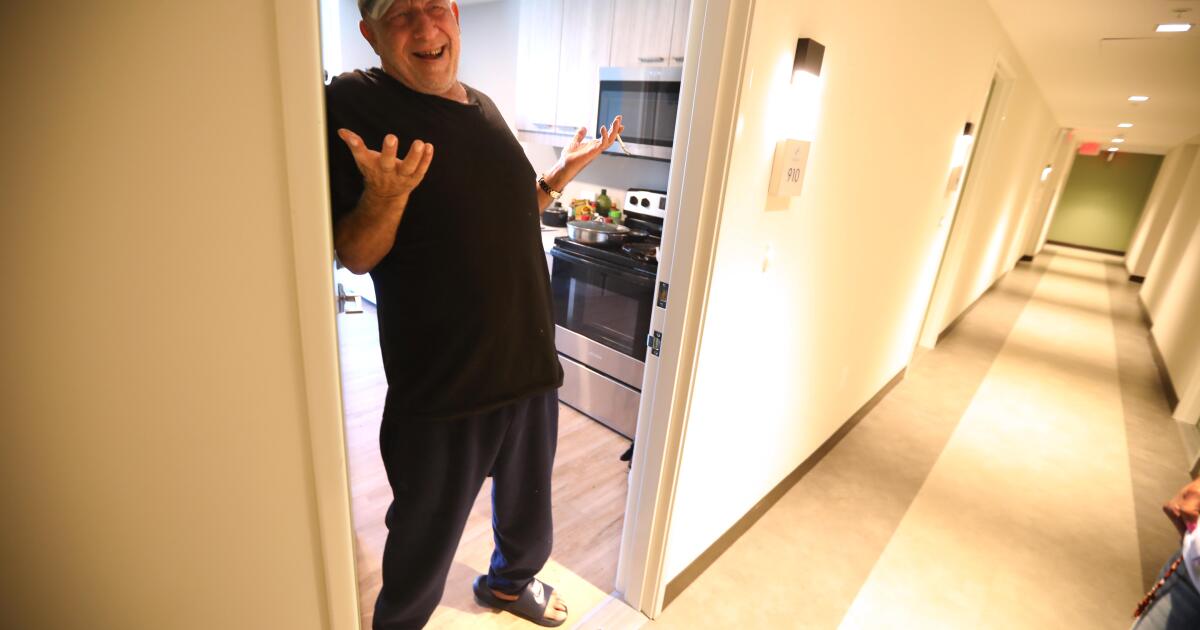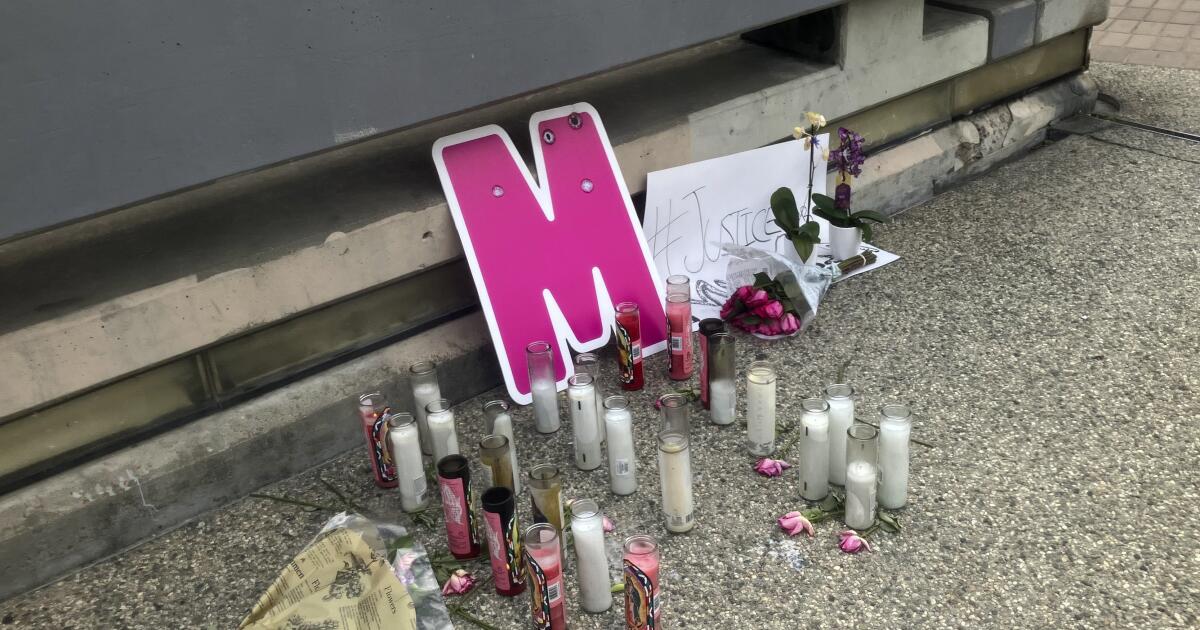Many Los Angeles residents will see their sewer rates double over the next four years, and the City Council approved the increases Tuesday despite objections from business groups concerned that homeowners would be disproportionately affected.
The council voted 11-4 in favor of the rate increases, with council members Monica Rodriguez, Kevin de León, Imelda Padilla and Heather Hutt dissenting.
The increases are necessary to finance the rising cost of construction and materials, Bureau of Sanitation officials said. Officials said labor costs will increase 24% over the next five years due to a recent pay package for city workers backed by Mayor Karen Bass and the council.
At Tuesday's meeting, Councilwoman Katy Yaroslavsky, who chairs the city's Energy and Environment Committee, urged the council to support the series of increases. There has not been an increase since 2020, when the council paused consideration of higher rates due to COVID-19.
“Unfortunately, this is one of those situations where we find ourselves between a rock and a hard place,” said Yaroslavsky, who called the rate increase “not insignificant.”
Because the fee increases are considered a property user fee under Proposition 218, the city's approximately 850,000 parcel owners will be notified. If the majority opposes it, then the rate increase fails, according to city officials.
Under the city's proposal, the bimonthly sewer charge for a typical single-family home would increase from $75.40 to $92.04 in October, according to sanitation officials. By July 2028, the rate would increase to $155.48, more than double the current rate.
The typical bimonthly sewer rate for residential buildings with four units or fewer, which is now $145, would increase to $177 in October and $299 in July 2028, according to the report.
For buildings with five or more units, the rate is typically $858.40 per month. Rates would rise to $1,047.84 in October and $1,770.08 in July 2028.
Landlords whose units are rent-stabilized (the vast majority of units in the city) typically cannot pass along water costs, which are tied to sewer costs, to their tenants, according to city officials.
Before the meeting, business groups accused the city of failing to adequately explain the need for the rate increases.
Daniel Yukelson, CEO of Apartment Assn. of Greater Los Angeles, told The Times that landlords have been prohibited from raising rents for several years due to COVID-19 and face other rising costs.
“Such an increase on this massive scale will prove to be another straw that breaks the camel's back for the city's rental housing providers,” Yukelson said. “There is no end in sight for such a poorly run city with its inflated salary and overall cost structure, wasted resources, and insatiable appetite to seek new, higher taxes and impose significantly higher fees on taxpayers.”
Stuart Waldman, president of the Valley Business and Industry Association, called the rate increases “hasty” and accused officials of not making enough public disclosure.
“This is the wrong way to do something that increases rates so drastically,” he said.
Bass' proposed budget for the fiscal year that begins July 1 was based on rate increases. Councilwoman Rodriguez expressed her concern about this and told her colleagues that the higher rates were “included in the budget.”
Rodriguez unsuccessfully pushed for his colleagues to commission an independent analysis of the rate increases from the city's Office of Public Accountability.
De León also expressed skepticism about the process for requesting rate increases.
“This sounds like a spur-of-the-moment job,” he said.
Money collected from fees may only be used for sewer-related purposes.
But the rate increases will have an impact on the city's general fund, which pays for basic services like police and fire. The fund subsidizes low-income residents who are charged sewer fees. That means the higher the fee, the more the general fund will contribute to helping families in need, budget officials said.
City officials say money from rate increases will pay for infrastructure repairs, including upgrades to aging sewer pipes.
The increase will also help satisfy agencies that evaluate the reliability of the city's bond programs, city analysts said at a hearing this month.
Anna Ortega, deputy director general of the city's Housing Department, at a committee hearing last week sought to alleviate concerns about the effect on landlords.
Ortega cited Department of Housing research showing that of the income a landlord receives annually from tenants, about 35% goes toward property operating expenses. Of that 35%, about 1.5% goes toward sewer costs.
“What I'm trying to say is that the utility percentage, although it's increasing, is a small percentage of operating expenses and operating income,” he said.












